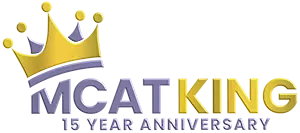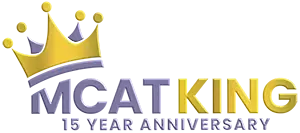Interview Prep for BS/MD Programs: What to Expect

Home • Interview Prep for BS/MD Programs: What to Expect
The BS/MD interview is one of the most important stages of the admissions process. By the time you are invited, the committee already knows you are academically capable. They have reviewed your GPA, test scores, and activities, and now they want to understand who you are as a person. The interview gives them insight into your maturity, your motivation for medicine, and your ability to communicate. For applicants, this is often the first time they are placed in a high-stakes interview setting. While it can feel intimidating, the process is also an opportunity to show authenticity and readiness for the unique path of a combined program.
The Different Formats of BS/MD Interviews
Traditional One-on-One Interview
This is the most familiar format. You meet individually with a faculty member, physician, or admissions officer who asks questions about your background, interests, and goals. The tone is often conversational, but it is still formal. The interviewer is evaluating how clearly you can articulate your reasons for pursuing medicine and whether your experiences support your decision.
Panel Interview
In a panel format, you sit before multiple interviewers who may represent different perspectives. One person may focus on academics, another on personal attributes, and another on your knowledge of the program. The challenge here is balancing your attention across all panelists, making eye contact, and engaging with each member rather than focusing on just one.
Multiple Mini Interviews (MMIs)
MMIs consist of a series of short stations where you are presented with a scenario or question and given a few minutes to respond. Scenarios may involve ethical dilemmas, teamwork challenges, or patient interactions. The goal is not to find the “right” answer but to assess your reasoning process, empathy, and ability to communicate under time pressure.
What Admissions Committees Look For
Maturity and Self-Awareness
At 17 or 18, you are committing to a demanding career. Committees want to see that you understand the weight of this choice.
Authentic Motivation
Saying you “want to help people” is not enough. They want to know what personal experiences led you to medicine and how you reflected on them.
Strong Communication Skills
A future physician must explain complex information clearly and connect with people from diverse backgrounds. Your ability to listen, think, and respond thoughtfully is just as important as your academic record.
Ethical Reasoning
Medicine is filled with dilemmas. Committees test how you analyze fairness, honesty, confidentiality, and compassion.
Fit for the Program
Each BS/MD program has a mission. Some emphasize research, others diversi
Common Interview Questions
While no two interviews are identical, many questions fall into familiar categories:
Motivation and Commitment
- Why do you want to become a physician?
- Why pursue a BS/MD program instead of a traditional path?
- What excites you most about this profession, and what challenges do you anticipate?
Experiences and Reflection
- Tell us about a meaningful volunteer or shadowing experience.
- What did you learn from working in a healthcare setting?
- Describe a challenge you faced and how you overcame it.
Personal Qualities
- What qualities make a good physician?
- How do you handle stress or failure?
- Describe a time you worked in a team.
Ethical Scenarios and Problem-Solving
- What would you do if you saw a peer cheating on an exam?
- Should a doctor ever withhold information from a patient?
- How would you handle a patient who refuses treatment?
Program-Specific
- Why did you choose our program?
- How will you take advantage of the flexibility this program offers?
- What role do you see yourself playing in our community?
How to Prepare Effectively
Research Each Program Thoroughly
Understand the program’s mission, values, and requirements. Read their website, look into faculty research, and understand their community focus. If they emphasize global health, think about how your experiences connect to that.
Develop and Practice Core Stories
Have five to six strong stories from your experiences that demonstrate qualities such as empathy, leadership, problem-solving, and perseverance. These stories should be adaptable to multiple questions.
Practice Speaking Out Loud
The way you express your answers matters as much as the content. Practice with teachers, mentors, or mock interviews. Record yourself and review your tone, pacing, and clarity.
Anticipate Ethical Questions
For MMIs or situational questions, the committee is not looking for a perfect answer but for thoughtful reasoning. Show that you can balance perspectives, consider patient welfare, and remain calm under pressure.
Strengthen Non-Verbal Communication
Good posture, steady eye contact, and a composed tone convey confidence. Small details such as a professional outfit and a distraction-free environment (for online interviews) make a lasting impression.
Reflect on Your Motivation
Be prepared to explain not only why you want to be a doctor, but why now. Committees will test if you have considered alternatives or if your decision feels premature. Honest reflection will help you answer these questions with credibility.
Mistakes to Avoid
- Memorizing responses word for word, which can make you sound rehearsed.
- Relying on generic answers instead of personal stories.
- Overemphasizing achievements without explaining what you learned.
- Failing to connect your interests to the program’s mission.
- Ignoring body language or coming across as disengaged.
- Forgetting professionalism in online interviews, such as logging in late, using poor lighting, or dressing casually.
Final Thoughts
The BS/MD interview is more than an assessment of your experiences. It is a conversation that reveals how you think, how you communicate, and how you view the path you are about to take. Committees are not expecting perfection. They are looking for sincerity, clarity, and maturity. If you prepare thoughtfully, practice reflection, and approach the interview as an opportunity to share your authentic story, you will show that you are ready for the challenges and responsibilities of a direct path to medicine.




